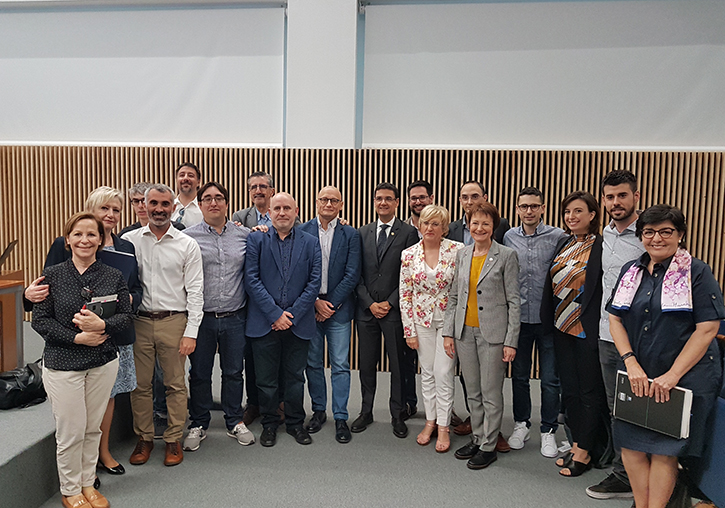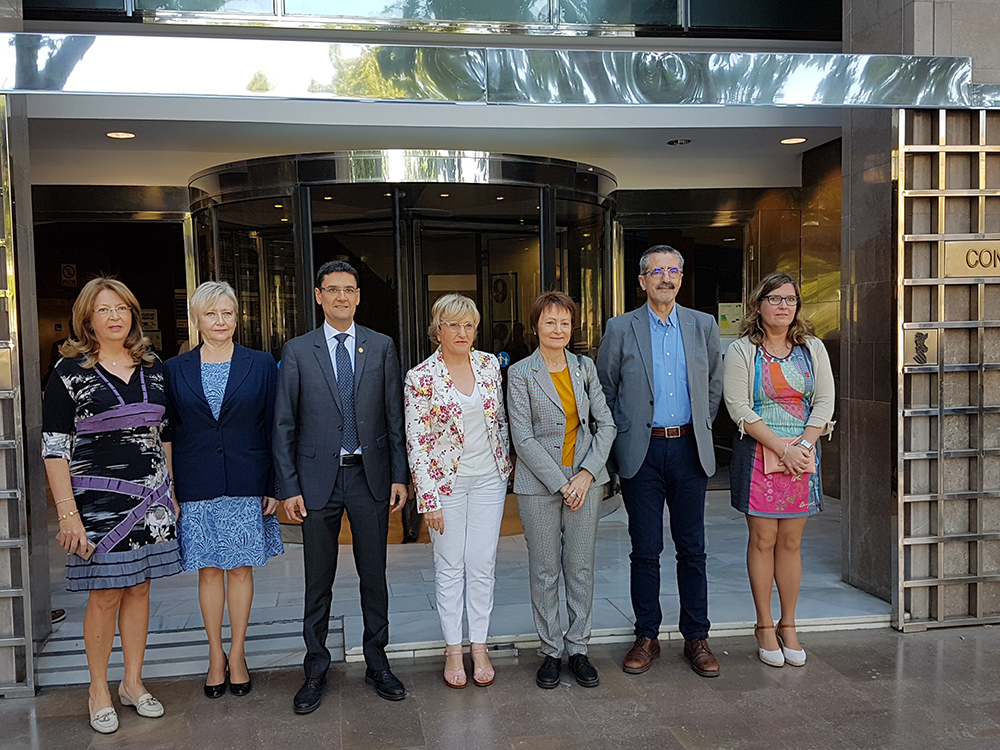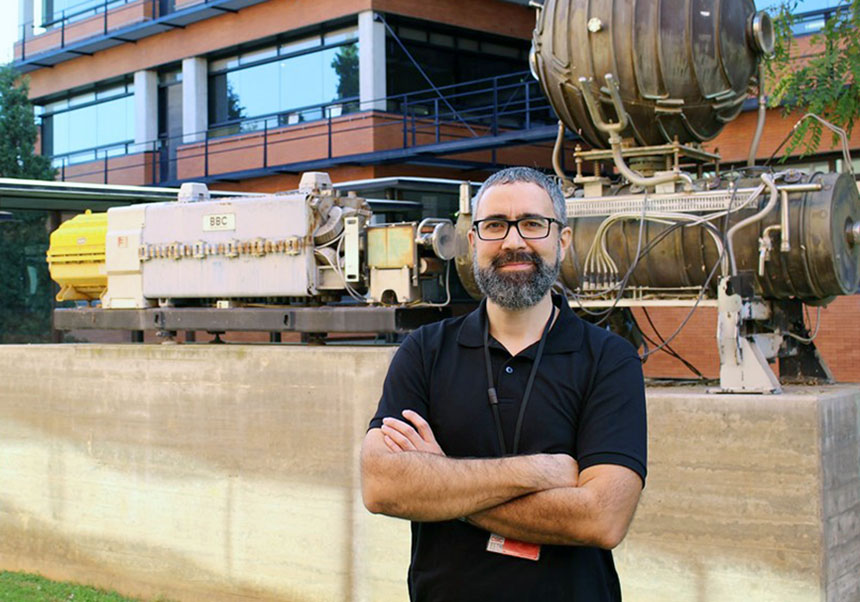The Universitat participates in the implementation of artificial intelligence for the management of the 112's healthcare demands
- Office of the Principal
- May 15th, 2019

Research teams of the Universitat de València, together with other teams of the Universitat Politècnica de València, the Ministry of Universal Health and Public Healthcare and the Agència Valenciana de Seguretat i Resposta a les Emergències have developed a project for the implementation of technologies based on artificial intelligence for the assistance in the classification of the healthcare demands.
This morning, the Conselleria de Sanitat Universal i Salut Pública, the Agència Valenciana de Seguretat i Resposta a les Emergències, the Universitat de València and the Universitat Politècnica de València have presented the new artificial intelligence project for the 112 phone service.
The minister of Universal Health and Public Healthcare, Ana Barceló; the general director of the Agencia de Seguridad y Respuestas a las Emergencias, José María Ángel; the general director of Health Care, María Amparo García Layunta; the Principal of the Universitat de València, Mª Vicenta Mestre; and the Principal of the Universitat Politècnica de València, Francisco Mora, have attended the presentation and witnessed how the new technology works.
The Principal of the Universitat de València, Mª Vicenta Mestre, has appreciated the work done ‘for three reasons: for having developed a system aimed at improving such a fundamental thing like the classification of healthcare demands, because this request of the Generalitat proves there is an orientation in the public policies based on the incorporation of technology and the continuous improvement of public services, and because it shows how the government opts for public services, especially for public healthcare’.
The telephone helpline of the population’s healthcare demand poses a challenge for the allocation and management of healthcare resources since they receive assistance requests of serious cases, as well as others that are not so serious and thus do not need immediate assistance.
Currently, the assistance of this telephone healthcare demand is being run by the same staff as the 112, who follow the protocols established by the Ministry of Universal Health and Public Healthcare. Out of all the telephone demands that the 112 receives, a 60% are healthcare demands. The optimisation of these calls is key for a proper user assistance.
Concurrently, none of the existing outpatient systems has a protocol that has been scientifically verified, regarding their effectiveness, for the allocation of the incident the person who’s calling is describing in the whole spectrum of possible seriousness.
The Ministry of Universal Health and Public Healthcare, together with the Agència Valenciana de Seguretat i Resposta a les Emergències, perform a continuous evaluation of the classification protocol that has allowed the creation of a joint project for the development of a tool that can help the operators of the 112 in the allocation task through the use of artificial intelligence techniques.
Experts from the Intelligent Data Analysis Laboratory of the Universitat de València and the Biomedical Data Science Lab of the Universitat Politècnica de València are the ones in charge of starting up these innovative techniques for the development of this tool that can support and optimise the allocation of each assistance call.
File in:
















